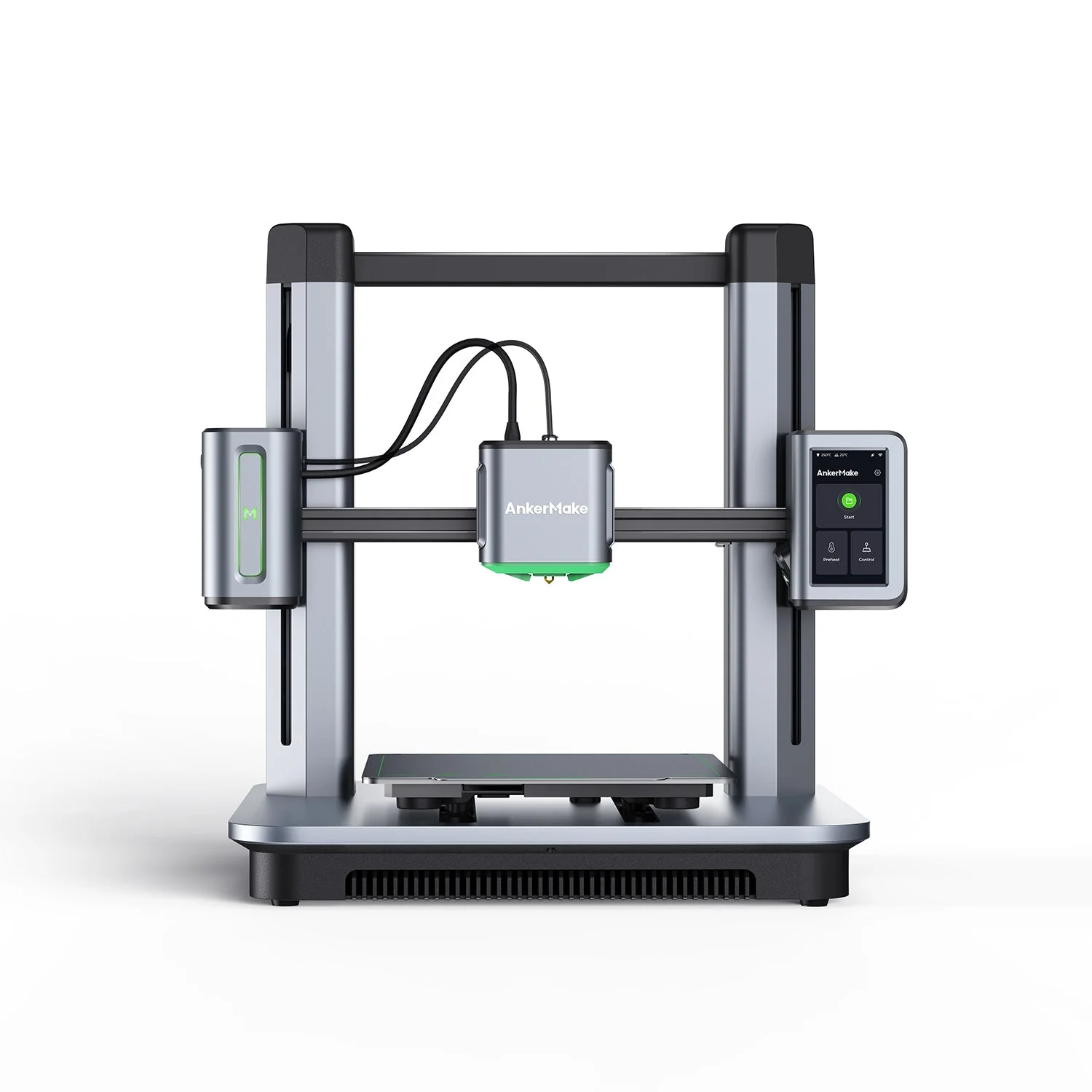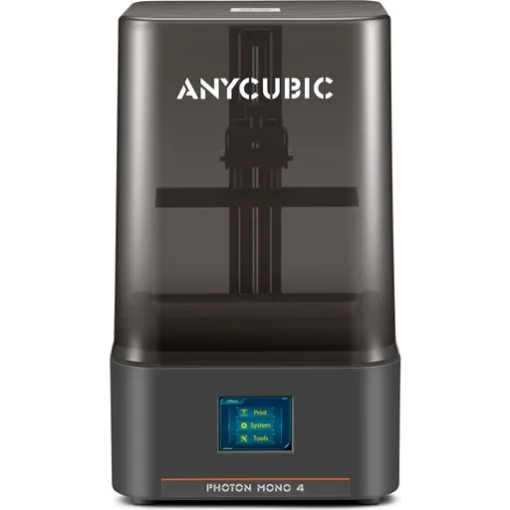Compare M5 vs Photo Mono 4
Comparison between the best 3D printers
Choose the best 3D printer at the best price. The cheapest 3D printers are here.
Buy a 3D printer here with 3D Fila.
 |
 |
|
| Model | M5 |
Photo Mono 4[BUY Photo Mono 4] |
| Printing Material | Filament | Resin |
| Buy Filament for AnkerMake M5 | Buy Resin forAnycubic Photo Mono 4 | |
| Estimated price | $497,00 | $200,00 |
| Manufacturer | AnkerMake | Anycubic |
| Release Year | 2023 | 2024 |
| Print Volume [mm] | 235x235x250 | 153x87x165 |
| Printer Size [mm] | 502x438x470 | 300x300x480 |
| Weight [kg] | 12,6 | 4 |
| Power Loss Recovery | YES | NO |
| Maximum Resolution [mm] | 0,1 | 0,01 |
| Processor | ||
| Display | Touchscreen 4,3'' | Touchscreen 2.8'' |
| Power Supply | 350 W | |
| Connectivity | Wi-Fi, USB-C, OTA Upgrade | USB |
| Operating systems | Windows, Linux, Macbook | Windows, Mac |
| Date of registration in the system | 2024-07-08 | 2024-12-13 |
| Release date | 2023 | 2024 |
| Extra features | The AnkerMake M5 printer stands out for its impressive print speed, reaching up to 500mm/s. It features AI print monitoring, an integrated camera for creating timelapses, auto-leveling bed with pressure sensor, direct extruder, flexible PEI-coated build plate, and Wi-Fi and USB-C connectivity. Assembly is quick and easy, and the printer is designed to deliver high print quality and ease of use. | The Anycubic Photon Mono 4 features 10K resolution (9024x5120), ensuring precise details with pixels of 17x17um. Its laser-engraved platform 2.0 offers excellent adhesion and easy model removal. Equipped with LighTurbo matrix lighting, it provides uniform illumination, reducing layer lines and rasterization. It has a print volume of 153.4x87x165 mm, 4-point manual leveling, and a print resumption function after power outages, optimizing time and materials. |
| Support for multiple colors and materials (AMS and CFS) | NO | NO |
Notes * |
||
| Cost-benefit | 7 / 10 | 8 / 10 |
| Hardware | 4 / 10 | 6.3 / 10 |
| Tela | . | . |
| Print volume | 3 / 10 | 3 / 10 |
| Performance | 4 / 10 | 9 / 10 |
| [BUY Photo Mono 4] |
Conclusion |
| In comparing the AnkerMake M5 and the Anycubic Photon Mono 4, several key factors emerge that can help potential buyers make an informed decision. **Print Quality and Resolution**: The Anycubic Photon Mono 4 excels in precision, offering a significantly higher maximum resolution than the AnkerMake M5. This makes it particularly suitable for users who prioritize intricate detail in their prints. **Print Volume and Size**: On the other hand, the AnkerMake M5 boasts a larger print volume, allowing for more substantial projects to be completed in one go. This feature enhances its versatility for a variety of applications compared to the more compact Photon Mono 4. **Ease of Use and Features**: The M5 comes equipped with advanced features like AI print monitoring, an integrated camera, and an auto-leveling bed, which cater to users seeking convenience and efficiency. Though the Photon Mono 4 does offer features such as a high-resolution display and uniform illumination for better print results, it lacks some of the advanced usability features of the M5. **Cost-Effectiveness**: Although the Anycubic Photon Mono 4 is the more budget-friendly option, it still provides excellent performance and quality, scoring higher in terms of cost-benefit ratio. The AnkerMake M5, while more expensive, includes enhanced features and capabilities that might justify the higher investment for serious enthusiasts or professionals. **Connectivity and Compatibility**: Both printers offer good connectivity options, but the M5 adds more versatility with its Wi-Fi and USB-C capabilities, supporting a broader range of devices and operating systems. In conclusion, the choice between the AnkerMake M5 and the Anycubic Photon Mono 4 ultimately depends on the user’s specific needs. If high resolution and intricate detail are paramount, the Photon Mono 4 is a compelling option, especially for those on a budget. Conversely, if larger print volumes and advanced features are critical, the AnkerMake M5 represents a worthy investment, particularly for users who prioritize performance and speed. Each model has its strengths, making both viable choices in the 3D printing market. |

